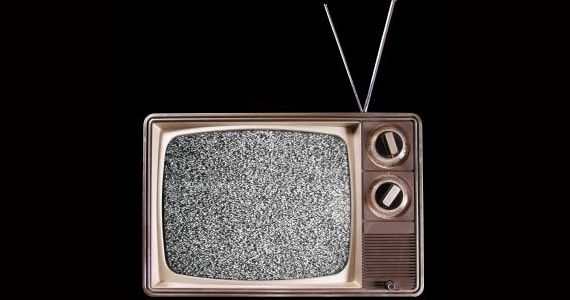I was amused, in that "that's funny and really, really not funny at all" sense, to read the other day that television news outfits have decided to actually try and wait for things to happen before announcing them during tonight's Presidential Election coverage. You'd think that "reporting what's happening" is a basic part of journalism, but the rush to become all-encompassing and beat everyone else to the big story - leaving journalism somewhat behind - is just another sign that it might be time to rethink television news altogether.
Brian Stelter's New York Times piece yesterday - in which he described today's election as "a chance to regain some credibility" for television news ("presuming, of course, that television networks and other news organizations get their state-by-state projections right," he added) - pointed out the trouble the television news has found itself in lately, whether its misinformation being reported as fact, CNN and Fox misreading the Supreme Court decision on healthcare and reporting the entirely wrong verdict for ten minutes, NBC editing the 911 tape to more strongly infer that George Zimmerman was a racist, and so on. It misses, however, the sheer exhaustion that television news brings with it these days.
When it came to news on last week's Hurricane/Superstorm Sandy, I found myself abandoning TV news altogether; I just knew, without tuning it, that it would be filled with talking heads telling me things that I didn't want to know and not those things that I did (Namely, how bad was it hitting the East Coast, and were friends and family over there alright). Between Twitter and the fantastic rolling liveblog coverage from the British Guardian newspaper's website (you can take the boy out of the U.K., but you can't take the desire to read good journalism for free on the Internet from a trusted source out of the boy, apparently), I found that I didn't feel the need for any particular television coverage of events, a feeling repeatedly strengthened by reports of inane and unintentionally amusing coverage on the cable news channels desperately trying to come up with new ways of saying "Holy crap, this is horrible" and maintain an air of authority. I was getting everything I needed elsewhere, thankyouverymuch, and in many cases, from people who were actually there.
This wasn't an entirely perfect way of getting information; the amount of mis- and disinformation on Twitter alone last week was staggering when it came to current events, reflecting the disorganization and panic brought about as the storm hit land and fulfilled worst-case scenarios (A fact not helped by those actively trying to push out disinformation). But even so, there was something more… authentic, perhaps? More trustworthy, in a strange way, about even that confusion and uncertainty, when compared with the endless blather of talking heads and experts that television news cycles up on a regular basis.
I admit, a lot of this discomfort with television news comes from paying too much attention to it during the Presidential Debates, and watching analysis and post-debate coverage even though I knew I shouldn't. In many ways, post-event "analysis" is something that should be prescribed to people who want to lose faith in television news reporting, because there's so much said with so little actual content inside of it. And yet, I watched through some subconscious masochism and ended up so… bored, disinterested and feeling as if my time had been wasted by the experience, and realized that I may just be done with television news.
I'll be tuning in tonight, I'm sure; if nothing else, the lure of The Daily Show/Colbert Report live coverage promises to be too funny to miss, even if that's not "officially" news coverage. But I can't shake the suspicion that I won't be relying on television to give me the news tonight as I did in 2008. It's a wired world out there, after all, and there are more ways to find out what's going on that the onetime voice of authority that's given up its credibility in a race to be faster than everyone else.

